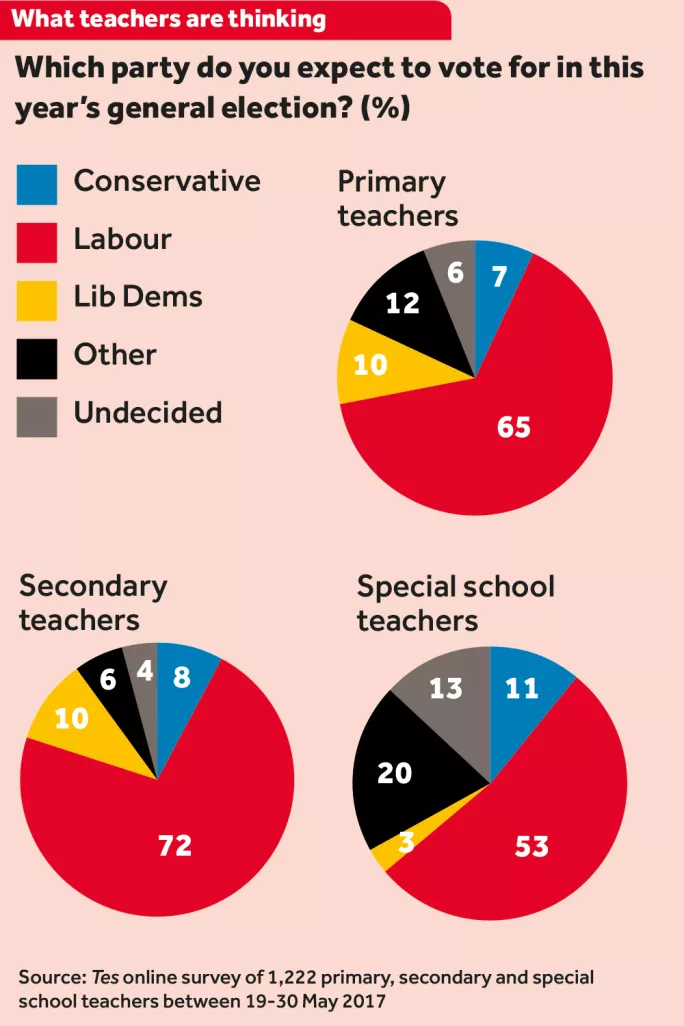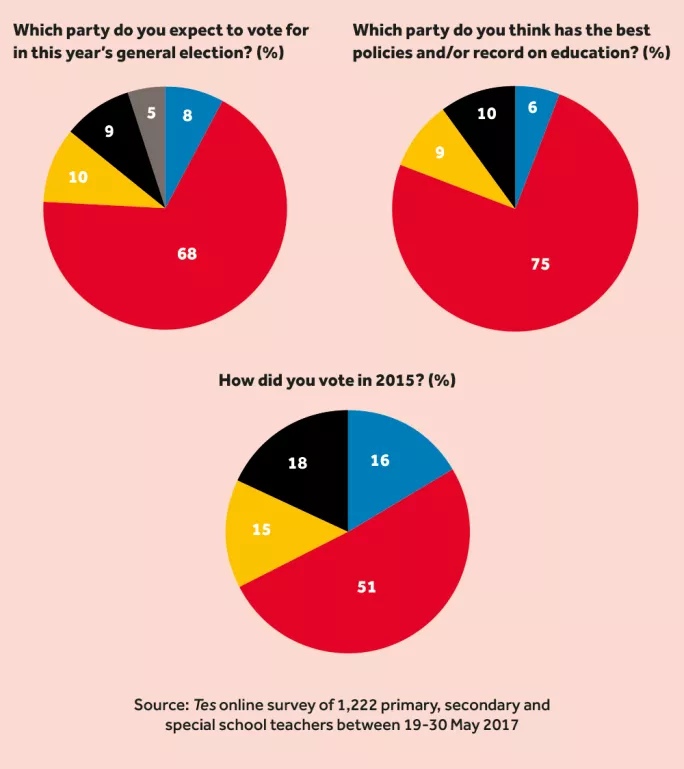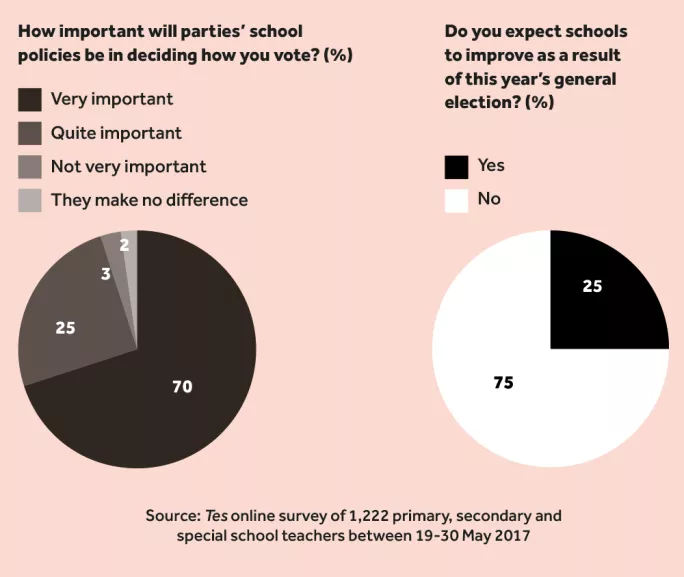Election could see big swing in the teacher vote

Voting could hardly be easier: you write a cross beside a person’s name on a piece of paper and put it in a box. But for many people, where they place their mark is the final act of a complex decision-making process. And a Tes poll has revealed how heavily schools policy will weigh in teachers’ calculations ahead of next week’s general election.
In the survey of more than 1,200 primary, secondary and special school teachers, 70 per cent of respondents said parties’ schools policies were “very important” in deciding how they vote, with a further 25 per cent saying they were “quite important”.
The poll gives Labour a 58 percentage point lead over the second-placed Liberal Democrats, with the Conservatives another 2 percentage points behind.
While the findings of the snap online survey might not mirror the actual percentage split in next week’s vote among teachers, it does point to a definite trend: teachers are making a big switch to Labour.
In the survey, 51 per cent of teachers said they voted Labour at the 2015 election. But when the same teachers were asked about their voting intentions for the 2017 ballot, that proportion increased to 68 per cent.
The Conservatives’ loss was greater than that of the Liberal Democrats, with support for the Greens and Ukip also falling. The environmentalists saw their share drop from 7 per cent to 3 per cent, while Ukip declined from 1.4 per cent to just 0.3 per cent.
The shift to Labour was greater among secondary teachers, rising from 52 per cent to 72 per cent, compared with 50 per cent to 65 per cent among primary teachers. The change was smallest among special school teachers, up from 47 per cent to 53 per cent.
The importance that teachers place on politicians’ plans for schools appears to play a big role in the swing to Labour. When asked which party has the best education policies or track record, almost three quarters opted for Jeremy Corbyn’s party.
Optimism in short supply
But teachers are not optimistic about the future: 75 per cent do not believe schools will be improved as a result of the election.
“Funding cuts have already hit schools hard,” one secondary teacher responded. “Even if more money is pumped into education, it will take years to rebuild.”
For John Tomsett, headteacher at Huntington School in York, it is school funding that is driving teachers towards Labour.
“I would say that in the lead up to 2015, education was off the agenda, as both main parties knew there would be funding cuts whoever got in,” he says. “It was not on the agenda. Although there were quite a few rumblings across the country, it was not hitting the classroom. It was at the headteacher level at that point. I think what has happened in the last two years is that people are realising it’s for real. The heads are not joking: ‘I used to have text books; my class has gone up from 27 to 32…’”
It is a view shared by Mary Bousted, general secretary of the ATL teaching union, who highlights the role of its School Cuts website - a co-venture with the NUT teaching union. She says: “That’s really galvanised people - £3 billion of school cuts is a big figure, but no one knows what it means. When you enter your school [on the site] and see it means thousands of pounds, it’s something different.”
Mark Lehain, founder and principal of the Bedford Free School in Bedford, describes the unions’ school funding campaign as “naughty” for conflating the funding formula with the general squeeze. But he admits it has “cut through” and helped drive the shift to Labour among teachers.
“This election campaign has come out of nowhere and has rocked up in the middle of the campaign against what unions claim are cuts,” adds Lehain, a policy fellow at right-leaning thinktank Policy Exchange. “I would imagine that has a lot to do with it.”
He also believes that those who support the Conservative reforms of the past seven years are now free to vote for other parties, safe in the knowledge that the other main parties would leave the reforms largely intact.



You need a Tes subscription to read this article
Subscribe now to read this article and get other subscriber-only content:
- Unlimited access to all Tes magazine content
- Exclusive subscriber-only stories
- Award-winning email newsletters
Already a subscriber? Log in
You need a subscription to read this article
Subscribe now to read this article and get other subscriber-only content, including:
- Unlimited access to all Tes magazine content
- Exclusive subscriber-only stories
- Award-winning email newsletters